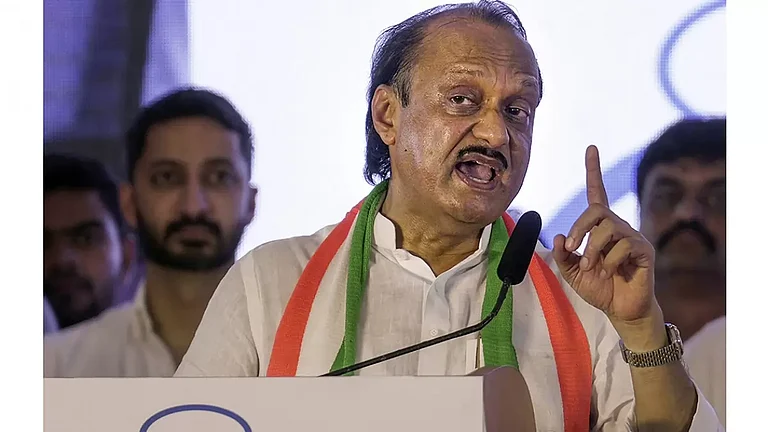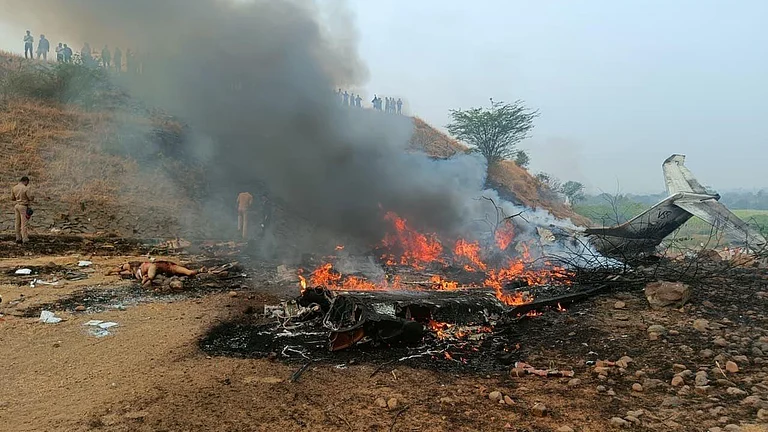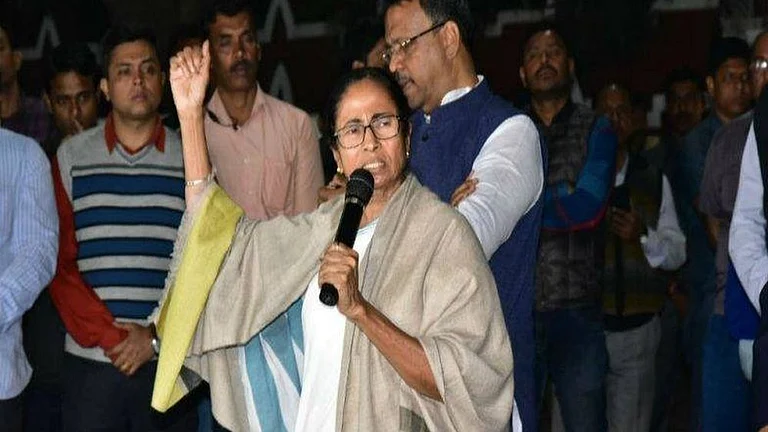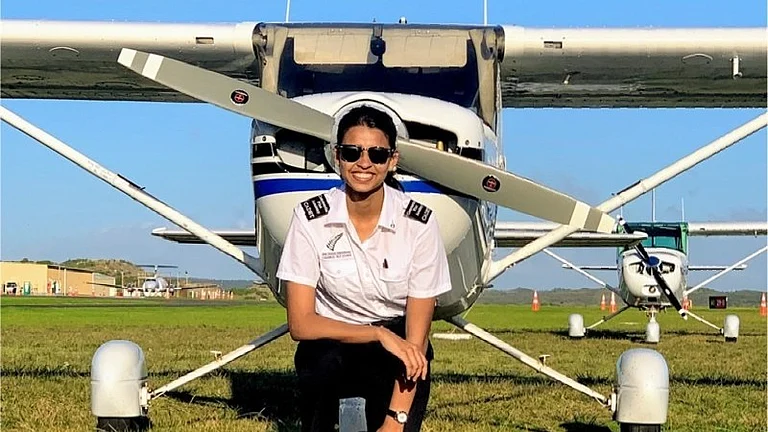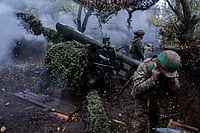A 37-year-old Captain Manish Raj Shakya was the pilot of the Saurya Airlines plane that met with a deadly crash in Nepal's Kathmandu, killing all the 18 person aboard the plane except him.
The Bombardier CRJ-200 aircraft on Wednesday, carrying 19 people including two crew members, technical staff of the airline and a child and his mother crashed and caught fire shortly after taking off from the Tribhuvan International Airport (TIA).
The Saurya Airlines aircraft was bound for the Pokhara International Airport for a maintenance service.
Officials had said that of the deceased, 15 persons had died on the spot while three others died during treatment at a local hospital.
HOW DID PILOT SHAKYA SURVIVE?
People have been wondering as to how in such a deadly crash, which claimed the lives of all persons on board the plane, the pilot turned out to be the lone survivor.
A media report on Thursday said that the Shakya was saved after the cockpit of the plane was clipped off by a freight container seconds before the rest of the aircraft burst in flames.
Airport security personnel reportedly said that when the plane hit the container, the cockpit's front part got stuck in it. This led the rest of the plane to fall on the ground reaching the other side it.
According to Ram Dutt Joshi, Deputy Inspector General and Chief TIA Airport Security Office, Captain Shakya was rescued from inside the container which was on the airport's premises.
"We rescued Captain Shakya from inside the container," DIG Joshi was quoted as saying by The Rising Nepal newspaper.
HEALTH STATUS OF CAPTAIN SHAKYA
Captain Manish Raj Shakya is currently undergoing treatment at Kathmandu Medical College (KMC) and doctors have initiated an investigation into his brain scars.
Doctors noted that though the injuries in different parts of Shakya's bodies and the broken bones at two places in his backbone have not led to any serious issue, they are trying to find out the cause behind the scars on his brain.
Neurosurgeon Dr Amit Thapa said that he would be able to provide any further information on this only after the Magnetic Resonance Imaging (MRI) of Shakya's brain scars.
Doctors said that the Captain's health condition showed improvement on Thursday, adding that he is "free from danger" and can speak. Shakya can now also consume liquid food.
According to KMC sources, Captain Shakya also sustained several internal injuries despite not being burnt in the fire.
Shakya is reportedly being prepared for a surgery to address his broken bones.
PANEL TO PROBE CRASH
A five-member probe commission, headed by the former Director General of the Civil Aviation Authority of Nepal (CAAN) -- Ratish Chandra Lal Suman -- has been formed to investigate the matter.
The commission is tasked with submitting its report and recommendations within 45 days to prevent similar accidents in the future.
Notably, the Nepal government -- to honour the 18 lost lives -- decreed that the national flag will be flown at half-mast on Thursday.
Other than this, authorities are conducting post-mortem of the 18 people at the Tribhuvan University Teaching Hospital.
Autopsy of seven of those deceased has been completed, news agency PTI reported. According to local reports, some postmortems have been difficult due to the excessive burns, adding that TUTH said that it has been taking at least four hours to complete on autopsy.
ALLEGATIONS ON AIRLINE
Some of the family members and friends of the victims have alleged that the airlines and civil aviation authority permitted the flight despite knowing that it had some technical issues.
Grand-uncle of co-pilot Sushant Katwal, Dirga Bahadur Khadka, said, "We suspect that the company put pressure on the pilots into flying the plane. Otherwise, no one would like to fly a plane with technical problems."
"A question also arises about the civil aviation authority, the aviation sector regulator," Khadka said, asking that "How could it allow planes with technical problems to fly?"
Similarly, Gyanendra Khadgi, who lost his brother-in-law Purna Ratna Shahi, a technician of Saurya Airlines, backed Khadka's questions.
“This is complete negligence on the part of civil aviation to allow the flight of a plane with a technical issue,” he told The Kathmandu Post newspaper.








